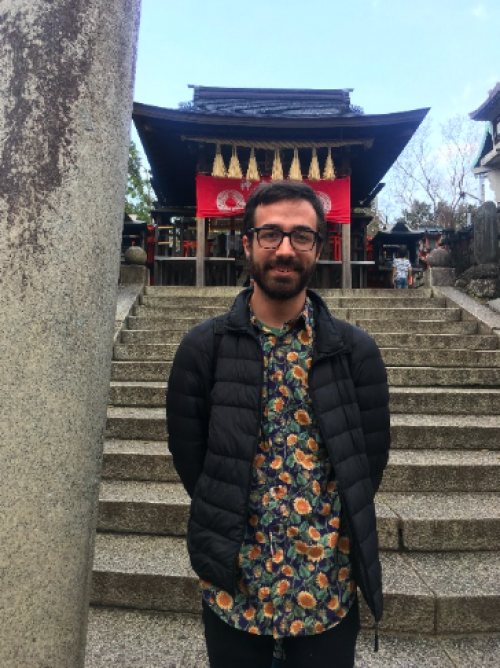Kyle Trager is KOOP’s Volunteer Coordinator, and in the finest tradition of his predecessors, he’s doing it well! We spoke on September 15.
Michael A. Brown: How did you and KOOP get together?
Kyle Trager: I moved to Austin this past January and KOOP had been on my radar since before the move. I like to seek out independent radio wherever I go because I was involved in that during college, and I wanted to be involved with KOOP in some way. In February, I attended the volunteer orientation, but circumstances kept me from joining the KOOP community at that time. But fortunately, this job opened up a few months later and the timing worked out well. So I applied and interviewed and was offered the position! I am really thrilled to be able to step into this role.
MAB: What was easy and what was challenging as you ramped-up in your new position?
KT: The easiest part was coming back into a community radio space. Even though my prior experience was almost a decade ago, it was great to renew the spirit of community, of creation, of collaboration, and everything that entails. The challenging part was coming into a new space with an entirely new group of people, I had to learn how everything was already working. There were already 70 programmers on the air plus lots of other volunteers. That meant getting to know everybody and how they connect and relate with one another and do the work to build KOOP into what it is. I’m still getting to know so many people … lots of names and faces to remember but it sure is fun.
MAB: Have there been any especially gratifying and fun experiences so far?
KT: There have been a couple moments where something seemed to be going wrong in the studio. Everything going out over the air was fine, but maybe the CD player was messing up and the programmer in the studio was flustered and worried. I’ve gone in a couple times and assured the person that it’s going to be OK. I tell them we’ll reason through it and try a few things, and everything turns out OK. Of course, we’re all human and at KOOP, we do everything by hand. That’s a dying art in radio and one that I appreciate.
MAB: Tell us about techniques you have found helpful for influencing volunteers.
KT: KOOPers come from all walks of life, and we have many obligations outside of KOOP. So when I have something to convey to volunteers or there’s an event that needs people, I don’t want to demand things of volunteers. Instead, my approach is to say, “These are the opportunities to participate, these are the ways to get involved, these are the ways to align what you do with KOOP’s stated values and stated mission.” And I remind volunteers that we require a certain number of hours because we rely on volunteers for all aspects of running the station and serving our community. I try to bridge any gaps by explaining why we are asking for certain help. That way, volunteers get to contribute in a way that’s possible and meaningful for them, and KOOP accomplishes what needs to be done.
MAB: What are the best ways for volunteers to go about influencing station policies and practices?
KT: KOOP has elected boards and committees whose job it is to consider issues affecting the station structure and operation. And there are checks and balances. Part of my role as Volunteer Coordinator is to understand the policies and practices and resources. Volunteers can ask me to steer them in the appropriate direction to raise their question, make a suggestion, or register a complaint. Sometimes, I may have to say, “That idea might not work in that form because we don’t have that resource or the policy doesn’t allow it, but let’s work the issue and try to find a way forward.” Volunteers can always come to me with questions, and I may be able to advise them, but I don’t have authority … the Board of Directors and the Programming Committee and the General Manager do.
MAB: At KOOP, what you are doing in addition to Volunteer Coordinator … such as on-air stuff?
KT: I’m currently in the process of being certified as a programmer through KOOP’s training program. I already have recorded a few underwriting announcements. I hope to have my own show on the air one day, most likely by joining a collective or at least subbing once I get the certification.
MAB: Beyond KOOP, what sorts of community things are you involved in?
KT: My partner and I met while working in the coffee business … we both were baristas. We had worked together and separately in coffee and then my partner got a job in Austin as a coffee importer and that’s why we moved here. So I am very connected to parts of the coffee community. Turns out there’s a kind of parallel between the alternative broadcasting you can hear on KOOP and the specialty coffee shops that put so much thought and care into roasting the coffee and preparing it in a certain way. The attention to detail at KOOP and at specialty coffee shops is a real plus for the Austin community.
Interview by Michael A. Brown
